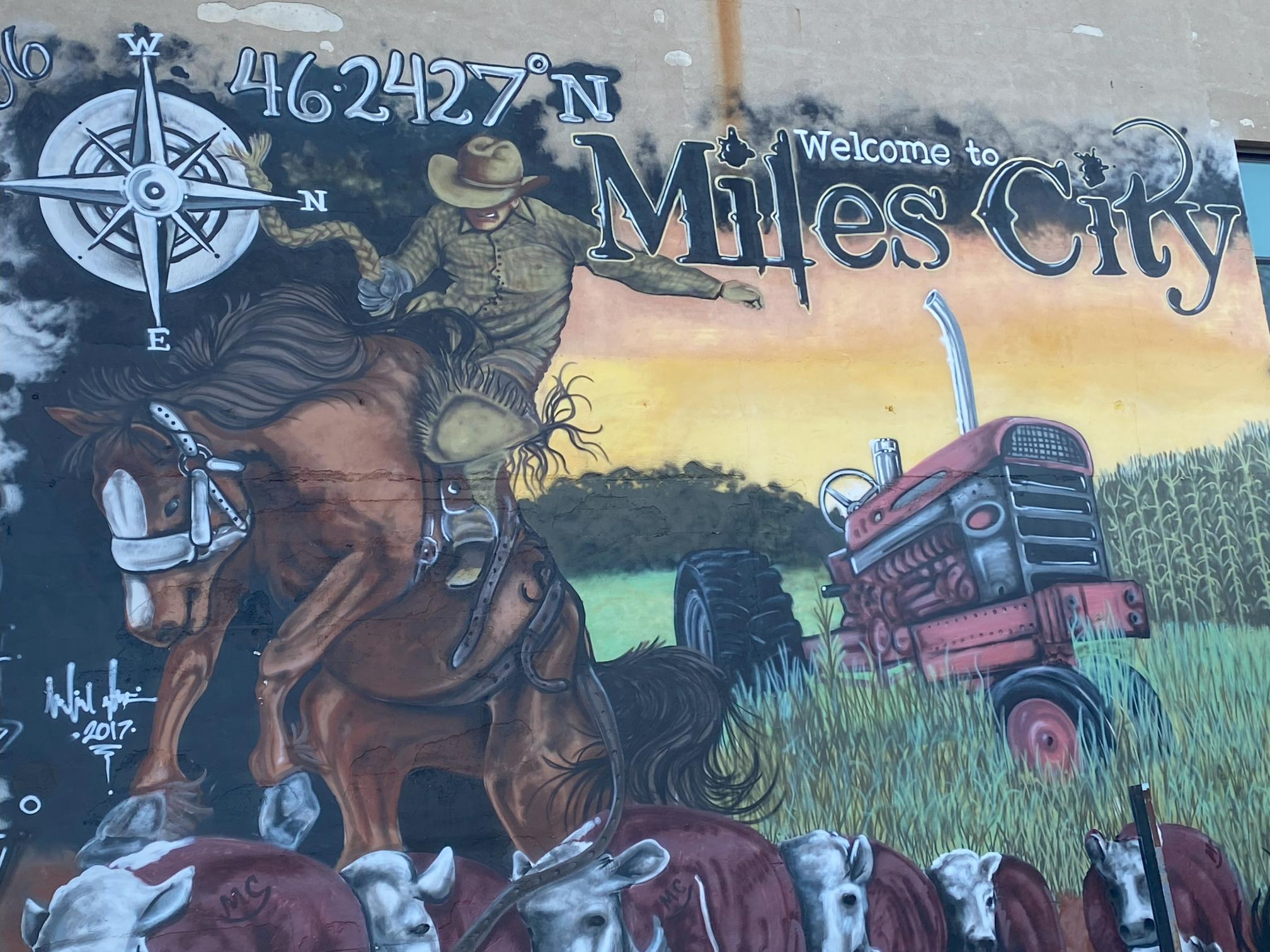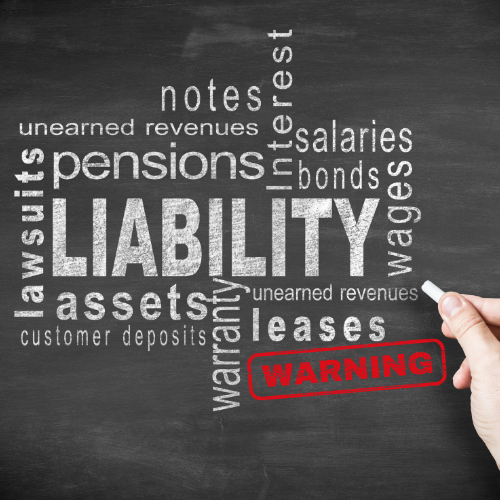
What is Commercial General Liability Insurance?
Owning a business means juggling risks every day—employee issues, customer interactions, contractors, and sometimes accidents that damage property or cause injuries.
Protecting your assets and staying prepared for the unexpected is just part of running the business, and that’s where Commercial General Liability insurance comes in.
Simply put, Commercial General Liability insurance pays the other guy for covered losses when someone is injured or their property is damaged, and your business is legally responsible.

If your business is not covered by a commercial liability insurance policy, the financial consequences of even a single lawsuit could be devastating.
Risk Exposures Covered by Commercial General Liability Insurance
Every business is unique, and so are the risks it faces. Still, most exposures fall into a few general categories—categories that Commercial General Liability insurance is built to cover.
- Premises and Operations – Injuries or property damage that occur on your business property or as part of your day-to-day operations.
- Products and Completed Operations – Claims from products you sell or work you’ve completed that cause injury or damage.
- Fire Legal Liability – Damage caused by fire to rented or leased property.
- Independent Contractors Liability – Coverage for work done by independent contractors on your behalf.
- Contractual Liability – Protection when you assume liability under a contract, like hold-harmless agreements.
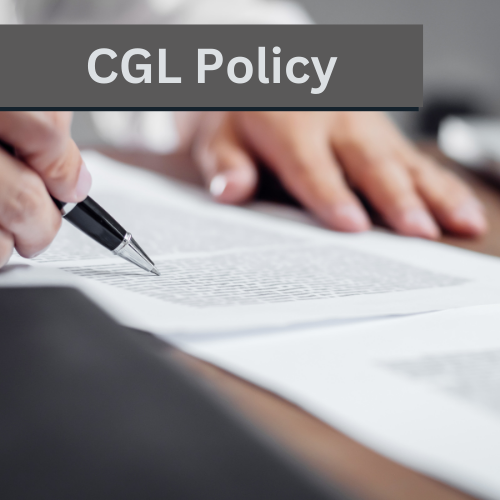
A Commercial General Liability (CGL) policy lays out exactly what is covered, helping you understand your protection and giving you confidence that you’re prepared if a claim comes your way
What Does Commercial General Liability Insurance Actually Cover?
Understanding what Commercial General Liability insurance covers is key to protecting your business. While each policy can vary, most CGL policies are built around a few core areas of protection—commonly referred to as Coverage A, B, and C.

These coverages define exactly what situations are included, from bodily injury and property damage to personal and advertising liability, giving you a clear picture of how your business is protected.
Coverage A: Bodily Injury and Property Damage
Coverage A: Bodily Injury and Property Damage protects your business if someone is injured or their property is damaged because of your business operations, products, or services.
It’s the core protection that addresses the most common liability exposures every business faces.

This coverage helps pay for medical expenses, repairs, or legal costs if your business is found legally responsible for the incident.
Coverage B: Personal and Advertising Injury Liability
Coverage B: Personal and Advertising Injury Liability protects your business if someone claims that your advertising or business practices caused harm to their reputation, privacy, or other personal rights
Businesses involved in advertising, publishing, or content creation can be especially vulnerable to these types of claims.
It ensures your business can defend against accusations of personal or advertising injury without risking financial stability.
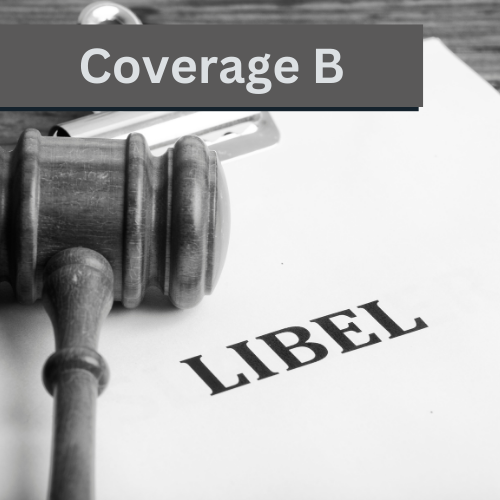
This coverage helps handle legal claims related to things like libel, slander, copyright infringement in advertising, or wrongful eviction.
Coverage C: Medical Payments
Coverage C: Medical Payments, helps pay for medical expenses if someone is injured on your business property, regardless of fault.
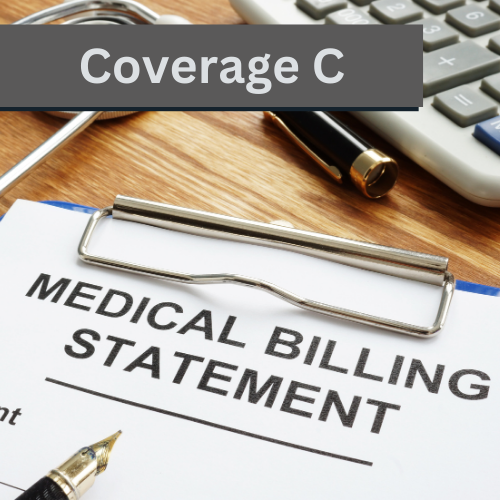
This coverage can take care of immediate medical costs, such as ambulance fees, doctor visits, or hospital charges, helping prevent small accidents from turning into large claims.
Understanding Commercial General Liability Coverage Limits
The insurance limits tell you how much your Commercial General Liability (CGL) policy will pay in different situations.
Common CGL Limits Are:
- General Aggregate Limit: The most the policy will pay for all claims during the policy period.
- Products-Completed Operations Aggregate Limit: Covers claims tied to work you’ve finished or products you’ve sold.
- Per Occurrence Limit: The maximum the policy will pay for a single incident.
- Medical Expense Limit: The maximum coverage for medical payments per person if someone is injured on your property.

A CGL policy doesn’t just have one overall amount—it sets separate limits for different types of claims so you know exactly what’s covered.
FAQs
Q: What does Commercial General Liability insurance cover?
- Commercial General Liability insurance helps protect your business if you’re held legally responsible for bodily injury, property damage, or personal and advertising injury. This can include situations like a customer slipping on your premises, damage to a client’s property, or claims involving libel, slander, or copyright infringement related to your business.
Q: Does General Liability cover employee injuries?
- No. Injuries to employees are not covered under a Commercial General Liability policy. Employee injuries are typically handled through workers’ compensation insurance. General Liability is designed to address claims made by customers, vendors, or other third parties.
Q: Is Commercial General Liability required by law?
- General Liability insurance is not usually required by law, but it is often required by landlords, lenders, or clients before they will work with you. Many contracts require proof of coverage to protect all parties involved if a claim arises.
Q: Does General Liability cover work performed off-site?
- Yes. Commercial General Liability coverage generally applies both at your business location and at job sites or client locations. If your operations cause injury or property damage away from your premises, the policy can still respond, as long as the claim falls within the policy terms.
Q: What isn’t covered by Commercial General Liability insurance?
- General Liability does not cover professional mistakes, employee injuries, damage to your own property, auto-related claims, or intentional acts. These risks are typically addressed through other policies such as professional liability, workers’ compensation, commercial auto, or property insurance.
Armor Insurance Agency in Miles City is Here to Help You
At Armor Insurance Agency, we understand that the details matter

We make sure your business is protected, so you can focus on running it with confidence

